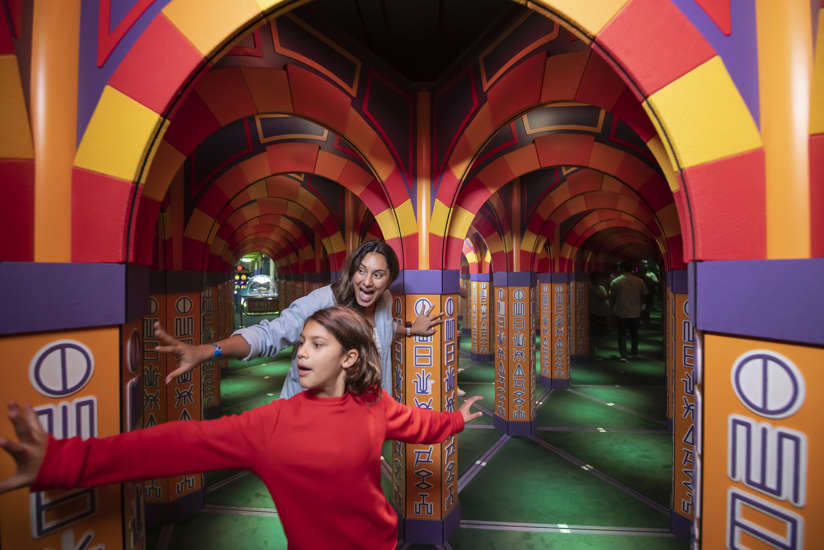Study a Globe of Experience and Problem-Solving in Escape Rooms
Escape areas have surged in popularity, using an one-of-a-kind blend of adventure and cognitive challenge that captivates individuals of all ages. From unraveling elaborate historical mysteries to browsing spooky, spine-chilling situations, each area offers a distinct narrative that tests your analytic acumen. Whether you're a seasoned fanatic or an interested novice, the allure of these immersive problems bids.
The Rise of Escape Rooms
Escape rooms have seen a considerable rise in appeal over the previous decade, changing from specific niche home entertainment to a mainstream phenomenon. Stemming in Japan around 2007, these interactive problem games swiftly astounded audiences worldwide. The immersive experience of being "secured" in an area and working collaboratively to fix problems within a set duration uses an unique mix of adventure and cognitive difficulty.
The increase of escape rooms can be associated to numerous variables. The interactive nature of retreat rooms provides a substantial comparison to the digital escapism widespread in electronic gaming.
Additionally, the social element can not be ignored. Escape spaces foster cooperation and interaction, encouraging individuals to merge their abilities and knowledge. This joint effort not just improves the experience yet additionally builds sociability amongst players. In addition, the consistent advancement of puzzle design and technological integration makes sure that escape rooms stay fresh and difficult, adding to their continual appeal.
Kinds of Escape Room Styles

One widespread theme is the "Enigma and Investigative" category, where individuals think the role of detectives entrusted with addressing a crime or uncovering a hidden truth. These areas frequently feature detailed problems and narrative-driven obstacles that require keen observation and logical reasoning.
One more preferred motif is "Historical and Experience". Right here, players may discover themselves in ancient Egypt, browsing through a pharaoh's burial place, or during World War II, decoding opponent messages. These styles offer an educational spin, blending historical facts with engaging gameplay.
For those looking for an excitement, "Horror and Paranormal" getaway rooms provide spine-chilling experiences. Embed in haunted houses or abandoned asylums, these spaces count on atmospheric effects and mental scares to heighten the tension.
Secret Skills for Success
Success in retreat spaces hinges on a mix of important abilities that individuals have to harness to overcome the varied difficulties they will certainly come across. Similarly vital is team effort; getaway areas call for a joint effort, where each individual's strengths are utilized to tackle various puzzles and tasks effectively.
An additional essential skill is eager monitoring. Focus to detail can disclose surprise hints and subtle tips that are crucial for progressing. Analytical thinking is likewise vital, allowing groups to study complex challenges and establish sensible connections in between inconsonant components within the area. Time monitoring is a further essential, as the repaired duration of getaway space experiences demands efficient allotment of time to different jobs and puzzles.
The ability to pivot approaches when initial plans fail ensures that teams can dynamically react to progressing difficulties. Proficiency of these abilities collectively enhances the probability of an effective escape.
The Psychology of Problem-Solving
Understanding the psychology of analytical is crucial for navigating the intricate challenges offered by getaway areas. Problem-solving is a cognitive procedure that involves acknowledging a trouble, creating possible solutions, examining them, and after that executing the very best strategy. Cognitive psycho therapists have actually long researched this procedure, determining different stages such as issue recognition, structuring the issue, and using heuristics or algorithms to discover options.
Escape rooms produce a setting where participants should swiftly relocate through these cognitive phases under pressure. The high-stakes, time-constrained nature of retreat rooms can generate a state of increased stimulation, which can either boost or impair cognitive performance depending upon the individual's anxiety response. The Yerkes-Dodson Law suggests that moderate tension levels can optimize problem-solving abilities, whereas too much stress and anxiety can be detrimental.
In addition, retreat areas often call for joint analytical, leveraging team characteristics to improve cognitive procedures. Understanding these psychological concepts can substantially enhance one's capability to address complicated puzzles effectively.
Tips for First-Timers
Getting started on your initial retreat room journey can be both awesome and overwhelming. The even more differed the ability set, the far better outfitted you'll be to deal with various go to the website types of challenges.
Interaction within the group is paramount. Share searchings for and insights without delay, as one person's exploration might be the missing piece one more needs. Stay clear of one-track mind; if a problem appears insurmountable, pass it on a teammate to get a fresh point of view.
Time management is additionally important. Watch on the clock and allocate your time carefully. It may be prudent to relocate on and return article to it later. if a certain challenge is taking in too much time.

Conclusion
Retreat rooms provide an unique mix of adventure, cognitive difficulty, and immersive storytelling, making them a prominent choice for both home entertainment and ability growth. By involving in complicated puzzles and diverse themes, participants improve team effort, communication, and analytical capabilities. The psychological benefits acquired from these experiences expand beyond the retreat area, fostering improved cognitive functions and social abilities. Accept the world of escape spaces to cultivate vital reasoning and create enduring, collaborative memories. site link
The consistent advancement of problem layout and technological assimilation guarantees that getaway rooms stay challenging and fresh, contributing to their sustained popularity. - escape room in la
Similarly important is synergy; retreat rooms require a collaborative initiative, where each participant's toughness are used to tackle various challenges and tasks successfully.
Time management is a more crucial, as the dealt with period of getaway area experiences necessitates efficient allocation of time to various tasks and challenges.
Recognizing the psychology of analytic is important for browsing the complex challenges offered by escape rooms.In addition, escape spaces frequently require collective analytic, leveraging group characteristics to enhance cognitive procedures.